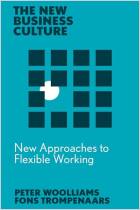Join getAbstract to access the summary!

Join getAbstract to access the summary!
Fons Trompenaars and Charles Hampden-Turner
Managing People Across Cultures
Capstone, 2004
What's inside?
Different corporate cultures both demand and create specific kinds of managers. What kind are you?
Recommendation
Fons Trompenaars and Charles Hampden-Turner cite interesting facts and studies as they discuss various facets of human resource management in an effort to bring HR departments closer to the daily lives and daily work of their diverse employees. They cover including change, motivation, recruitment, assessment tools, managing teams, organizational learning, leadership development and diversity, all with some attention to cross-cultural issues. Even if their reach sometimes exceeds their grasp, pulling all these elements together in a diverse organization remains a worthwhile goal.
Summary
About the Authors
Fons Trompenaars is director of Trompenaars-Hampden-Turner, an intercultural management firm. He wrote or co-wrote several books, including Did the Pedestrian Die?, Leaders for the 21st Century and Riding the Waves of Culture. Charles Hampden-Turner, the author of 18 books, is a senior research associate at Cambridge University. A graduate of Cambridge and Harvard Business School, he is a former Guggenheim and Rockefeller Humanities fellow and a visiting professor at Singapore’s Nanyang Business School.


























Comment on this summary